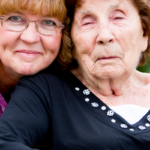
Thrilling Updates Unveiled at the 2023 Transforming Care Conference!
7. 9. 2023
Redesigning Caregiving: Empowering the Unsung Heroes
14. 9. 2023Providing informal care to our senior family members is an act of love and compassion that enables them to thrive in their natural physical and social environments. However, it’s crucial to recognize the challenges faced by the unsung heroes, our informal caregivers. These dedicated individuals often find themselves vulnerable, with limitations in their social lives and access to effective help.
Our colleague Jiri has taken a bold step to address these issues. Drawing on empirical evidence and data from a representative sample of informal caregivers in the Czechia, Jiri has proposed pathways to reduce inequalities in older age by improving the involvement of both seniors and caregivers.
One striking finding is that 32% of caregivers consider supportive social services focused on caregivers very useful. The share of respondents who agree is even higher among those who provide more than 60 hours of care per week.
It is time to prioritize the well-being of caregivers and transform the landscape of caregiving. Satisfying their needs is critical not only to the quality of informal care but also to the empowerment of caregivers themselves. Let us highlight the latent and neglected issue of unmet caregiver needs and promote human-centered design for caregiver-centered services.





